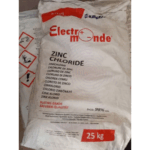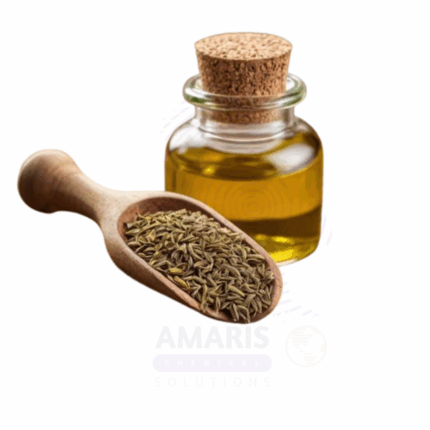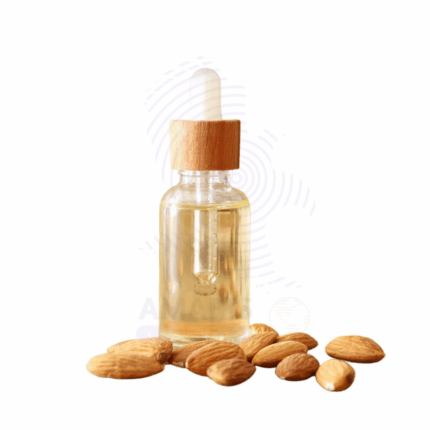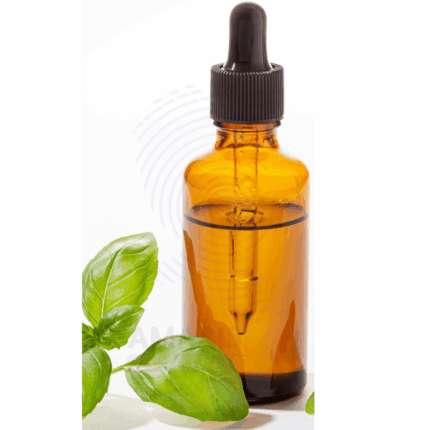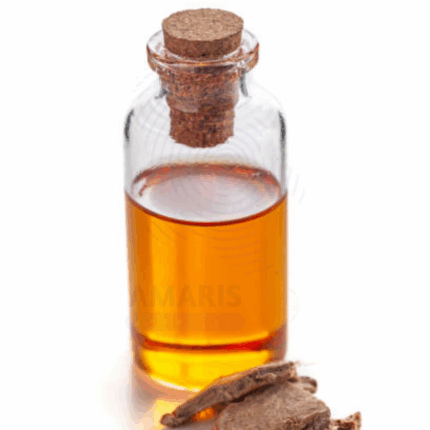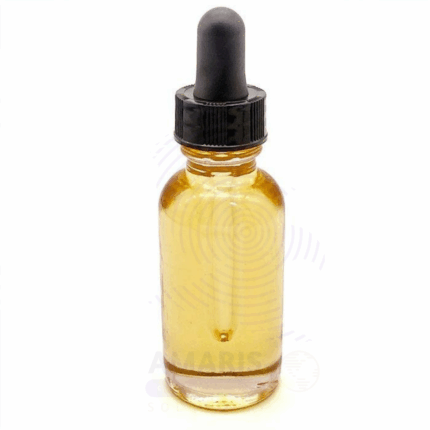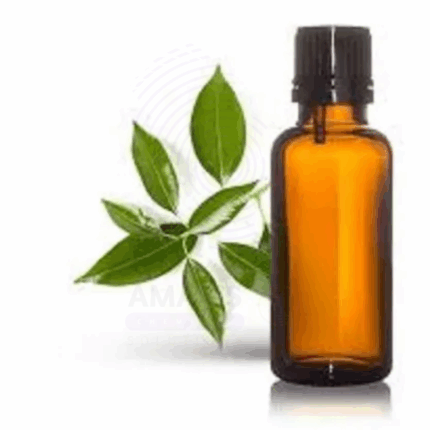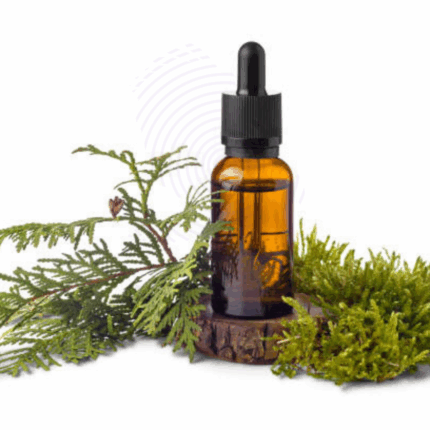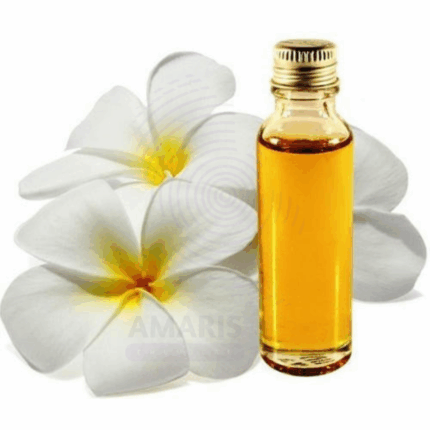Melilot Oil
Whatsapp Order
Melilot Oil, extracted from the flowering tops of the Melilotus officinalis plant, is a fragrant essential oil prized for its sweet, hay-like aroma with herbal and slightly balsamic undertones. This oil contains key components such as coumarin, flavonoids, and essential fatty acids, known for their anti-inflammatory, anticoagulant, and calming effects. Traditionally used in herbal medicine and aromatherapy, Melilot Oil supports circulation, reduces swelling, and promotes relaxation. Its therapeutic properties and soothing scent make it a valued ingredient in topical formulations, massage blends, and wellness products.
Description
Table of Contents
Toggle
Melilot Oil
Primary Uses
- Aromatherapy & Wellness
- Diffused to promote relaxation and relieve stress-related tension.
- Used in massage blends to ease muscle stiffness and improve circulation.
- Incorporated in blends for reducing bruising and inflammation.
- Applied in calming formulations to alleviate anxiety and promote restful sleep.
- Used in topical applications to soothe minor skin irritations and swelling.
- Cosmetics and Personal Care
- Added to creams and lotions for skin conditioning and anti-inflammatory benefits.
- Included in bath oils and body oils for soothing and moisturizing effects.
- Used in massage oils for its warming and calming sensation.
- Incorporated in natural deodorants and after-shave products for fragrance and skin soothing.
- Blended into serums targeting skin redness and sensitivity.
- Topical Applications
- Diluted in carrier oils for application on bruises and swollen areas to enhance recovery.
- Used in compresses or poultices to reduce inflammation and promote healing.
- Included in natural anti-inflammatory ointments and balms.
Secondary Uses
- Fragrance and Ambient Scenting
- Used as a middle note in natural perfumes with floral, herbal, and sweet accords.
- Blended into scented candles and room sprays to create a calming, meadow-like atmosphere.
- Incorporated in linen sprays for a fresh, soothing scent on fabrics.
- Spa and Therapeutic Products
- Added to bath salts and aromatherapy soaks for relaxation and muscle relief.
- Used in massage oils and therapeutic blends for post-exercise recovery.
- Incorporated in aromatherapy rollers and sprays for mindfulness and stress relief.
KEY PRODUCT FEATURES
1. Basic Identification Attributes
- Botanical Name: Melilotus officinalis
- Common/Trade Name: Melilot Oil
- INCI Name: Melilotus Officinalis Oil
- CAS Number: 8015-87-2
- HS Code: 3301.29
- Synonyms: Sweet Clover Oil
2. Physical & Chemical Properties
- Physical State: Liquid essential oil
- Color & Odor: Pale yellow to amber; sweet, hay-like, herbal aroma
- Solubility: Insoluble in water; soluble in alcohol and fixed oils
- Refractive Index: 1.480 – 1.495
- Specific Gravity: 0.900 – 0.950
- Main Components: Coumarin, flavonoids, essential fatty acids
3. Safety & Hazard Attributes
- GHS Classification: May cause skin irritation and sensitization; use with caution
- Toxicity: Low toxicity when properly diluted; external use only
- Exposure Limits: Refer to Safety Data Sheet (SDS)
- Allergen Information: Contains naturally occurring coumarin and other allergens
4. Storage & Handling Attributes
- Storage Conditions: Store in a cool, dry, dark place away from sunlight
- Container Type: Amber glass or aluminum containers with airtight seals
- Shelf Life: 18 to 24 months when properly stored
- Handling Precautions: Use gloves and avoid prolonged skin exposure
5. Regulatory & Compliance Attributes
- Compliant with IFRA standards for safe fragrance use
- Produced in GMP-certified manufacturing facilities
- Not classified as hazardous for transport under standard regulations
6. Environmental & Health Impact
- Biodegradability: Biodegradable under normal conditions
- Ecotoxicity: Low aquatic toxicity at typical use levels
- Bioaccumulation: Not expected to bioaccumulate significantly
SAFETY HANDLING PRECAUTIONS
Safety Handling Precautions
- PPE Required: Gloves and protective eyewear recommended
- Handling Guidelines: Use in well-ventilated areas; avoid inhalation of vapors
First Aid Measures
- Inhalation: Move to fresh air; seek medical attention if symptoms persist
- Skin Contact: Wash with soap and water; discontinue use if irritation occurs
- Eye Contact: Rinse immediately with plenty of water for 15 minutes; seek medical help
- Ingestion: Do not induce vomiting; seek medical assistance promptly
Firefighting Measures
- Fire Hazards: Flammable liquid; keep away from ignition sources
- Extinguishing Media: Foam, dry chemical powder, carbon dioxide, water mist
- Special Precautions: Use full protective gear and self-contained breathing apparatus
- Hazardous Combustion Products: Carbon monoxide, carbon dioxide, organic compounds
Related products
Ajowan oil
Ajowan Oil, also known as Ajwain Oil or Trachyspermum Ammi Oil, is an essential oil obtained by steam distillation of the seeds of the Trachyspermum ammi plant. With a strong, pungent, thyme-like aroma, Ajowan Oil is rich in thymol—a powerful compound known for its antiseptic, antimicrobial, and digestive properties. Traditionally used in Ayurvedic and Unani medicine, Ajowan Oil is valued today across food preservation, pharmaceuticals, and natural personal care formulations.
This oil exhibits broad-spectrum antimicrobial effects and is widely used in therapeutic balms, oral care, digestive tonics, and antiseptic blends. It also finds applications in fragrance formulations that benefit from its spicy, herbal character. Its potent biological activity makes it effective in natural pest control and disinfectant preparations.
Almond Fragrance Oil
Almond Fragrance Oil is a synthetic or naturally blended aromatic compound designed to replicate the warm, sweet, and nutty scent of almonds. It may incorporate notes of marzipan, vanilla, or cherry-like tones to mimic the characteristic aroma of bitter almonds without the presence of cyanogenic compounds. Unlike essential oils, fragrance oils are created for consistent aroma performance and are widely used across cosmetics, personal care, household products, and scented formulations.
This versatile oil delivers a nostalgic, comforting scent often associated with desserts, cleanliness, and warmth. It is valued for its stability in soaps, lotions, candles, and air care products. Almond Fragrance Oil is typically formulated to be allergen-compliant and IFRA-certified for safe use across applications.
Basil sweet oil
Basil Sweet Oil is a high-quality essential oil extracted via steam distillation from the leaves and flowering tops of the Ocimum basilicum plant, known as Sweet Basil. This chemotype is rich in linalool and low in estragole, making it gentler and more suitable for topical use than other basil varieties. With a fresh, sweet, herbaceous, and slightly floral aroma, Basil Sweet Oil is highly valued in cosmetics, personal care, aromatherapy, and natural wellness formulations.
This essential oil is known for its clarifying, uplifting, and antiseptic properties. It supports mental clarity, soothes muscular tension, and offers anti-inflammatory and antimicrobial benefits for skin and scalp. Basil Sweet Oil is especially preferred in formulations targeting sensitive skin and emotional well-being.
Cabreuva Oil
Cabreuva Oil is a gentle, sweet, woody-scented essential oil obtained via steam distillation of the wood of the Myrocarpus fastigiatus tree, native to South America. This light amber oil is known for its high content of nerolidol—a sesquiterpene alcohol with soothing, anti-inflammatory, and antimicrobial properties. With its mild, balsamic aroma and skin-calming effects, Cabreuva Oil is primarily used in cosmetics, perfumery, and aromatherapy applications.
It blends well with floral, citrus, and resinous oils, making it a versatile fixative in natural fragrance formulations. In personal care, it is valued for its skin-healing and regenerating effects, suitable for mature and sensitive skin types.
Calmintha Oil
Calmintha Oil is an aromatic essential oil derived through steam distillation of the aerial parts of Calamintha nepeta or closely related species within the Calamintha genus. Also known as lesser calamint, Calmintha is a herbaceous plant known for its minty, slightly camphoraceous fragrance with subtle floral undertones. The oil is rich in compounds such as pulegone, menthone, and isomenthone, which contribute to its invigorating, clarifying, and antimicrobial properties.
Used in traditional herbal medicine, perfumery, and aromatherapy, Calmintha Oil offers refreshing aromatic effects and is frequently utilized in respiratory blends, skin formulations, and natural cleaning products. Due to its high pulegone content, topical use should be limited and well-diluted.
Camphor White Oil
Camphor White Oil is a steam-distilled essential oil obtained from the wood of the Camphor tree (Cinnamomum camphora), primarily from the white fraction, which is rich in 1,8-cineole, camphor, and linalool. This fraction is the most commonly used in aromatherapy and topical preparations due to its potent but relatively balanced composition compared to brown or yellow fractions. The oil has a sharp, penetrating aroma with a cooling, medicinal character.
Traditionally used in topical pain relief, respiratory care, and soothing balms, Camphor White Oil is known for its anti-inflammatory, decongestant, antiseptic, and stimulating effects. It is widely used in cosmetics, personal care, pharmaceuticals, and aromatherapy formulations.
Cedar Leaf Oil
Cedar Leaf Oil is a potent essential oil steam-distilled from the leaves and twigs of the Thuja occidentalis tree, also known as Northern White Cedar or Arborvitae. It has a sharp, camphoraceous, and woody aroma, largely due to its high thujone content. This oil is known for its antifungal, antiseptic, and insect-repellent qualities, making it a popular component in cosmetics, aromatherapy, natural cleaning products, and insecticides. It also plays a role in herbal and wellness applications when used topically and in moderation due to its potency.
Michelia Flower Oil
Michelia Flower Oil is an essential oil extracted through steam distillation or solvent extraction from the flowers of Michelia species (e.g., Michelia champaca, Michelia alba). Known for its rich, floral, and slightly fruity aroma, it is widely used in perfumery, aromatherapy, and traditional medicine. The oil is prized for its therapeutic properties and as a natural fragrance ingredient.


 Preservatives(food)
Preservatives(food) Flavor Enhancers
Flavor Enhancers Acidulants
Acidulants Sweeteners
Sweeteners Antioxidants
Antioxidants Colorants(food)
Colorants(food) Nutraceutical Ingredients (food)
Nutraceutical Ingredients (food) Nutrient Supplements
Nutrient Supplements Emulsifiers
Emulsifiers
 Collectors
Collectors Dust Suppressants
Dust Suppressants Explosives and Blasting Agents
Explosives and Blasting Agents Flocculants and Coagulants
Flocculants and Coagulants Frothers
Frothers Leaching Agents
Leaching Agents pH Modifiers
pH Modifiers Precious Metal Extraction Agents
Precious Metal Extraction Agents
 Antioxidants(plastic)
Antioxidants(plastic) Colorants (Pigments, Dyes)
Colorants (Pigments, Dyes) Fillers and Reinforcements
Fillers and Reinforcements Flame Retardants
Flame Retardants Monomers
Monomers Plasticizers
Plasticizers Polymerization Initiators
Polymerization Initiators Stabilizers (UV, Heat)
Stabilizers (UV, Heat)
 Antifoaming Agents
Antifoaming Agents Chelating Agents
Chelating Agents Coagulants and Flocculants
Coagulants and Flocculants Corrosion Inhibitors
Corrosion Inhibitors Disinfectants and Biocides
Disinfectants and Biocides Oxidizing Agents
Oxidizing Agents pH Adjusters
pH Adjusters Scale Inhibitors( water)
Scale Inhibitors( water)
 Antioxidants(cosmetic)
Antioxidants(cosmetic) Emollients
Emollients Fragrances and Essential Oils
Fragrances and Essential Oils Humectants
Humectants Preservatives
Preservatives Surfactants(cosmetic)
Surfactants(cosmetic) Thickeners
Thickeners UV Filters
UV Filters
 Fertilizers
Fertilizers Soil Conditioners
Soil Conditioners Plant Growth Regulators
Plant Growth Regulators Animal Feed Additives
Animal Feed Additives Biostimulants
Biostimulants Pesticides (Herbicides, Insecticides, Fungicides)
Pesticides (Herbicides, Insecticides, Fungicides)
 Active Pharmaceutical Ingredients (APIs)
Active Pharmaceutical Ingredients (APIs) Excipients
Excipients Solvents(pharmaceutical)
Solvents(pharmaceutical) Antibiotics
Antibiotics Antiseptics and Disinfectants
Antiseptics and Disinfectants Vaccine Adjuvants
Vaccine Adjuvants Nutraceutical Ingredients (pharmaceutical)
Nutraceutical Ingredients (pharmaceutical) Analgesics & Antipyretics
Analgesics & Antipyretics
 Analytical Reagents
Analytical Reagents Solvents(lab)
Solvents(lab) Chromatography Chemicals
Chromatography Chemicals Spectroscopy Reagents
Spectroscopy Reagents microbiology-and-cell-culture-reagents
microbiology-and-cell-culture-reagents Molecular Biology Reagents
Molecular Biology Reagents Biochemical Reagents
Biochemical Reagents Inorganic and Organic Standards
Inorganic and Organic Standards Laboratory Safety Chemicals
Laboratory Safety Chemicals Specialty Laboratory Chemicals(Special Laboratory Equipment)
Specialty Laboratory Chemicals(Special Laboratory Equipment)
 Demulsifiers
Demulsifiers Hydraulic Fracturing Fluids
Hydraulic Fracturing Fluids Scale Inhibitors(oil)
Scale Inhibitors(oil) Surfactants(oil)
Surfactants(oil) Drilling Fluids
Drilling Fluids
 Dyes and Pigments
Dyes and Pigments Bleaching Agents
Bleaching Agents Softening Agents
Softening Agents Finishing Agents
Finishing Agents Antistatic Agents
Antistatic Agents
 Admixtures
Admixtures Waterproofing Agents
Waterproofing Agents Sealants and Adhesives
Sealants and Adhesives Curing Compounds
Curing Compounds Concrete Repair Chemicals
Concrete Repair Chemicals Anti-Corrosion Coatings
Anti-Corrosion Coatings
 Surfactants(cleaning)
Surfactants(cleaning) Builders
Builders Enzymes
Enzymes Solvents (Cleaning)
Solvents (Cleaning) Fragrances
Fragrances
 Electronic Chemicals
Electronic Chemicals Catalysts
Catalysts Lubricants
Lubricants Photographic Chemicals
Photographic Chemicals Refrigerants
Refrigerants Automotive chemicals
Automotive chemicals Pyrotechnic Chemicals
Pyrotechnic Chemicals
 Biodegradable Surfactants
Biodegradable Surfactants Bio-based Solvents
Bio-based Solvents Renewable Polymers
Renewable Polymers Carbon Capture Chemicals
Carbon Capture Chemicals Wastewater Treatment Chemicals
Wastewater Treatment Chemicals
 Pigments
Pigments Solvents(paint)
Solvents(paint) Specialty Coatings
Specialty Coatings Binders/Resins
Binders/Resins Additives
Additives Driers
Driers Anti-Corrosion Agents
Anti-Corrosion Agents Functional Coatings
Functional Coatings Application-Specific Coatings
Application-Specific Coatings
 Leavening Agents
Leavening Agents Dough Conditioners
Dough Conditioners Flour Treatments
Flour Treatments Fat Replacers
Fat Replacers Decoratives
Decoratives Preservatives(baking)
Preservatives(baking)
 Plasticizers & Softeners
Plasticizers & Softeners Reinforcing Agents
Reinforcing Agents Adhesion Promoters
Adhesion Promoters Vulcanizing Agents
Vulcanizing Agents Antidegradants
Antidegradants Blowing Agents
Blowing Agents Fillers & Extenders
Fillers & Extenders Accelerators & Retarders
Accelerators & Retarders
